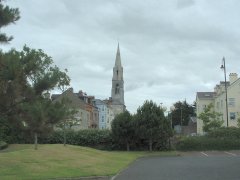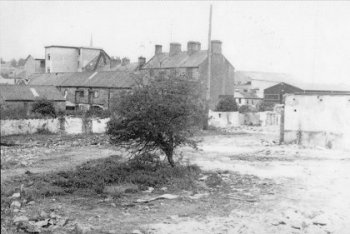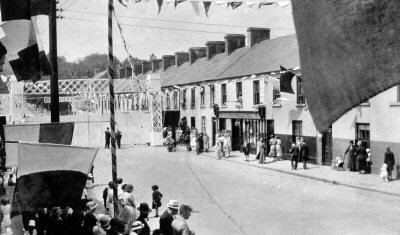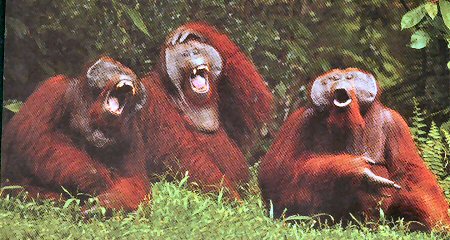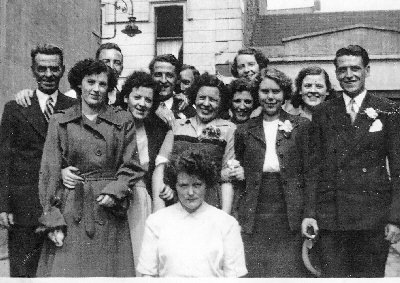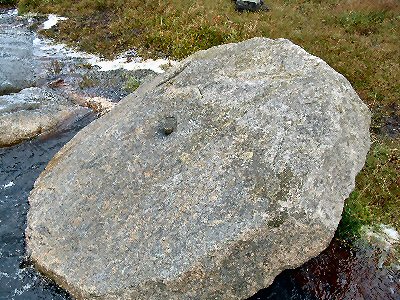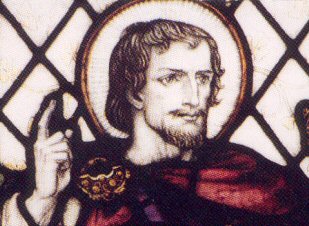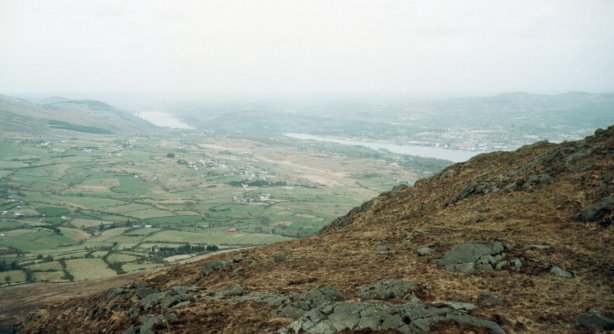The three Pats, Gibney, Lundy and Kavanagh were chatting over a pint in the Railway Bar one evening – oh, all right, they had a pint each – and having exhausted the usual topics of the shortcomings of women, the latest football results and the price of hay, they finally got round to telling each other riddles. There was a problem here, for none was too sure exactly what a riddle was. Anyway, Lundy, the intellectual, began with the Riddle of the Sphynx.
‘What is it’, he says, ‘that walks on four legs in the morning, two in the afternoon and evening, but three at night?’
‘That doesn’t make any sense!’ snorted Gibney.
‘Sense or not, what’s the answer?’ the first went on.
Well, the other two wrinkled up their eyebrows in a pretence of thinking, but there was no way they’d ever come up with the right answer. In the end they just gave up.
‘It’s man!’ crowed Lundy, triumphantly. ‘Can’t you see? When he’s a baby, in the morning time of his life, he crawls on all fours. Then as a man, he walks upright. When he’s old, he needs a walking stick.’
‘Well, I hope yours makes more sense,‘ jeered Kavanagh, though, if truth be told, he was racking his brains to think of one when it’ud be his turn!
‘A house with neither windows nor doors, but golden treasure it holds within,‘ chanted Gibney, forgetting the rhyme but getting the gist of it just the same.
‘Now you’re just being silly! How cud there be a house with no windies or durs?’
‘You don’t know, is that what yer’re saying?’
‘What’s the answer yer’re lukkin’ for?‘ says the other.
‘The right answer, of course, ye hoor ye!’
They were bate, ye cud see. But they wudn’t own up. In the end, Gibney too had to explain.
‘It’s an egg. Isn’t it home to the chicken before she hatches? And it has no windies or durs. She has to break out. The yolk is the treasure!’
‘Here,’ says Pat, suddenly brightening, ‘which should ye say, ‘the yolk of the egg is white’ or ‘the yolk of the egg are white’?’
‘Eggs’ yolks ‘s yellar!’ shouted Lundy. ‘And I hope you don’t think you’re getting off that aesy!’
But Kavanagh had had a brainwave. He’d heard one weeks before from a man in a pub in Kerry, when a young lad had entered. He had said,
‘Brothers and sisters have I none, but this boy’s father is my father’s son’.
‘Yer talking in conundrums’, complained Paddy Lundy. He might have been for all he knew, but he stuck to his task.
‘All right, I’ll say it again for yous, ‘Brothers and sisters have I none, but this boy’s father is my father’s son”.
‘Aye, it’s a good one,‘ says Gibney. ‘Is it your round?’
‘Don’t try and change the subject. What’s the answer?’
‘There’s no question that calls for an answer!’ roared Lundy.
‘The answer to the riddle!’ he persisted.
‘What is it you want to know? Who’s the brother or sister, the grandfather, the father, the son or the Holy Ghost?’
‘Just give the answer,’ says Kavanagh, weakening, for he wasn’t sure himself.
They didn’t want to admit defeat. But there was nothing they could even guess. In the end, Kavanagh took pity on them and said,
‘Luk, yus wouldn’t know him anyway, for it’s this fella I met when I was on holiday in Kerry!’
[In case you are beating your brains out too, the ‘boy’ is the son of the speaker, so the boy’s father is the speaker: when he says ‘my father’s son’ he is referring to himself as that son, and obviously the second father is the first ‘boy’s’ grandfather. I hope that’s clear now!]
